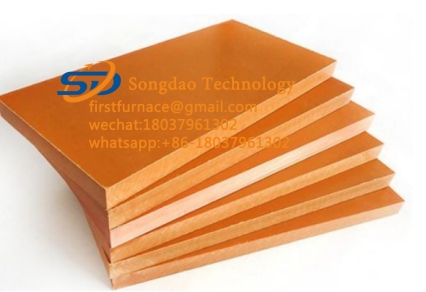- 24
- Apr
What are the commonly used insulating materials for motors
What are the commonly used insulating materials for motors
Insulating materials are materials that are non-conducting under allowable voltage, but not absolutely non-conducting materials. Under the action of a certain external electric field strength, conduction, polarization, loss, breakdown and other processes will also occur, and long-term use will also occur Ageing. The resistivity of this product is very high, usually in the range of 1010~1022Ω·m. For example, in a motor, the insulating material around the conductor isolates the turns and the grounded stator core to ensure the safe operation of the motor.
One: Film and composite materials for electrical engineering
Several high molecular polymers can be made into films with different characteristics and uses. The characteristics of electrical films are thin thickness, softness, moisture resistance, and good electrical and mechanical strength. Commonly used electrical films are polyester film (level E), polynaphthyl ester film (level F), aromatic polyamide film (level H), polyimide film (level C), polytetrafluoroethylene film (level H) ). Mainly used as motor coil wrapping insulation and winding liner insulation.
2: Insulating mica and its products
There are many types of natural mica. The mica commonly used in electrical insulation is mainly muscovite and phlogopite. Muscovite is colorless and transparent. Phlogopite is close to metallic or semi-metallic luster, and the common ones are gold, brown or light green. Muscovite and phlogopite have excellent electrical and heat resistance properties, chemical stability, and good corona resistance. It can be peeled into flexible thin slices with a thickness of 0.01~0.03 mm. It is an important raw material for the manufacture of high-voltage insulation materials.
3: Laminated products
Motor commonly used laminated products are made of glass cloth (or mesh) dipped in glue (such as epoxy resin, silicone resin or phenolic resin) and then hot pressed. Among them, the phenolic glass cloth board has certain mechanical strength and electrical properties: but it has poor cleavage resistance and general mildew resistance, which is suitable for making general insulating parts. Epoxy phenolic resin glass cloth board has high mechanical strength, moisture resistance, electrical performance and mildew resistance. It is suitable for high-voltage motors as stunning parts, and is suitable for use in humid tropical regions. The organic silicon glass cloth board has high heat resistance (H grade) and good electrical performance, but its mechanical strength is lower than that of the epoxy phenolic glass cloth board. It is suitable for high temperature resistant insulation parts and also suitable for mixed tropical areas. Laminates are usually used as slot wedges, slot gaskets, insulating pads and wiring boards in small and medium-sized motors.


